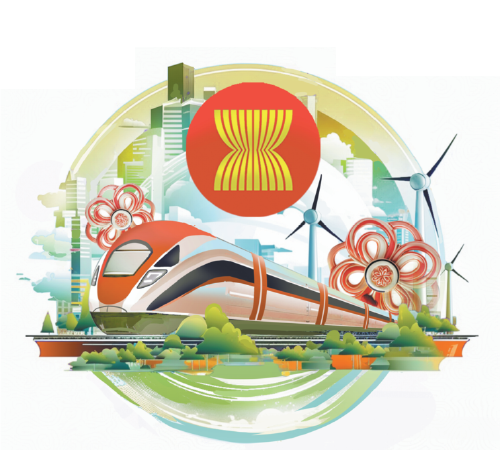China, ASEAN need to tackle challenges


The 43rd ASEAN Summit, to be held in Jakarta on Sept 5-7, will signal the beginning of a period of hectic activity in the Asia-Pacific region. Right after the ASEAN Summit and related leaders' meetings, several leaders attending the meeting are expected to fly to India to attend the G20 Summit in New Delhi from Sept 8 to 10.
The Association of Southeast Asian Nations has come a long way since it came into being in 1967 and held its first summit in 1976. Interestingly, the first ASEAN Summit, too, was held in Indonesia (Bali to be precise). Indonesia is currently the chair of the 10-member ASEAN that includes Brunei, Cambodia, Indonesia, Laos, Malaysia, Myanmar, the Philippines, Singapore, Thailand and Vietnam. In fact, Indonesia, the largest and most populous country in Southeast Asia, has always played a prominent role in providing leadership to ASEAN.
Indonesia's prominent role in not just regional affairs, but also international affairs, is evident from its successful handling of G20 affairs as the group's chair in 2022. Indeed, Indonesia's experience of handling the diplomatic challenges of being the G20 chair will help it to successfully chair the ASEAN Summit.
ASEAN summits have significantly focused on the relationship between ASEAN and its strategic partners, the most important being those countries with whom ASEAN has established comprehensive strategic partnerships. They include Australia, China, India and the United States. Among these strategic partners of Indonesia, China has a special role. China is not only a comprehensive strategic partner of ASEAN, but also a part of the ASEAN+3 regional cooperation mechanism which also includes Japan and the Republic of Korea. China is also engaged with ASEAN through the East Asia Summit mechanism.
China's engagement with ASEAN is deep and varied, and it is most prominent on the economic side. China's organic economic linkages with ASEAN member states have resulted in China's economic performance having a strong impact on ASEAN's economic prospects.
Of late, China is experiencing relatively slow economic growth. After growing by only 3.0 percent last year, the Chinese economy, as forecast by the International Monetary Fund, is expected to grow by 5.2 percent and 4.5 percent in 2023 and 2024. This relatively low rate of China's GDP growth has also impacted developing Asia. ASEAN, which is an important part of developing Asia, is expected to grow by 5.3 percent in 2023 and 5.0 percent in 2024. Clearly, China's relatively slow growth rate has impacted the growth of developing Asia and ASEAN.
Over the years, several industrial supply chains have emerged in the Asia-Pacific, integrating the economies of China and many ASEAN member states. Many of these supply chains were disrupted, even ruptured during the COVID-19 pandemic. Many of the regional supply chains, in the meantime, had begun reconfiguring, creating new production network specifications among China, ASEAN and the rest of the world.
The pandemic also created new complications for regional geopolitics. The Sino-US competition has intensified, and is particularly manifesting in uneasy developments across the Taiwan Strait. The ASEAN economies, many of which are US defense partners and/or security allies, are finding it difficult to balance their relations between Beijing and Washington.
Complications have arisen also because the Russia-Ukraine conflict has dragged on for more than one and a half years. In fact, different ASEAN members have taken different positions on the conflict, with some of them being at variance with that of China. This, too, is impacting China's relations with ASEAN.
The final challenge to deepening cooperation between China and ASEAN arises from the struggles that are manifesting in critical areas such as climate change and the digital economy. Both China and ASEAN are facing the downsides of climate change. However, to jointly fight climate change, they need to establish or deepen cooperation across a large range of cross-border industrial rules and regulations, over which there might be disagreements.
Regional digital regulations, too, have given rise to problems. With digital trade becoming extremely significant, digital regulations have become critical to the overall prospects of trade and economic development for China and ASEAN. Both climate change and digital economy rules have political implications as well, in terms of the security issues they comprise, and are bound to impact mutual discussions.
Given their long history of engagement, China and ASEAN must closely reflect on various aspects of their relationship to ensure their trade and economic exchanges yield more mutual benefits in the future amid an increasingly complicated world.
The author is a senior research fellow and research lead (trade and economics) in the Institute of South Asian Studies, National University of Singapore.
The views don't necessarily reflect those of China Daily.


































